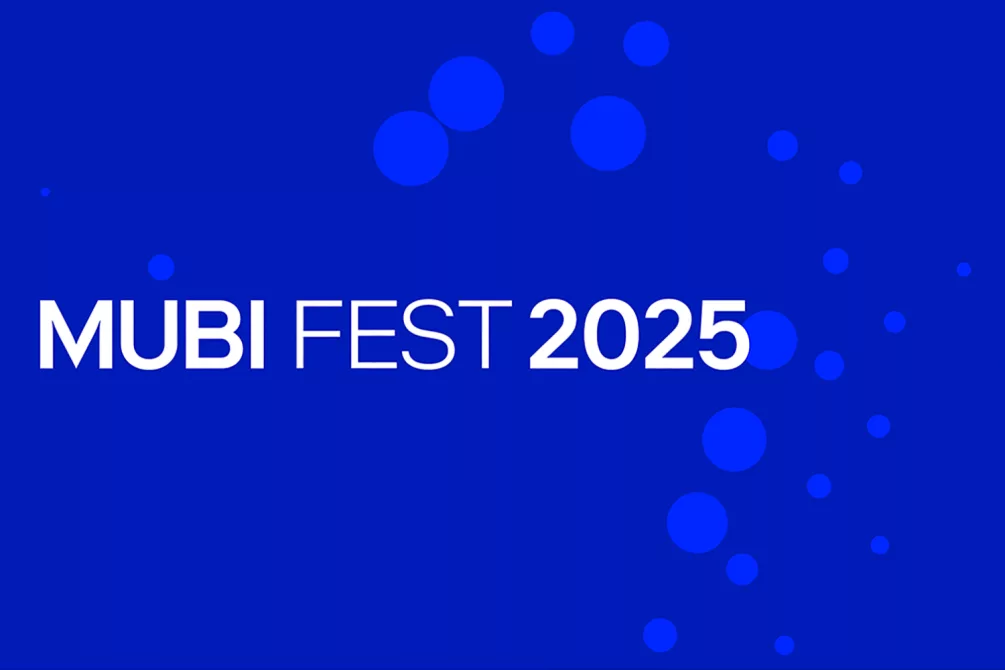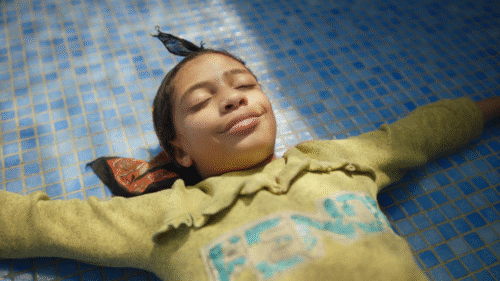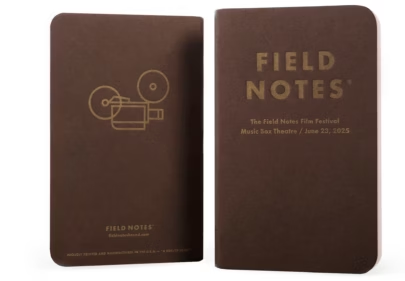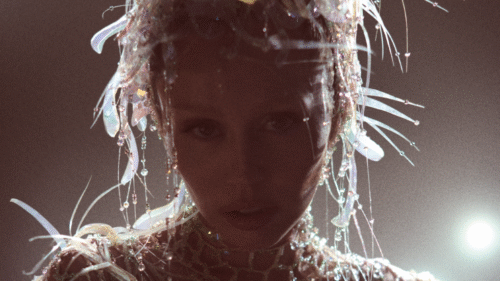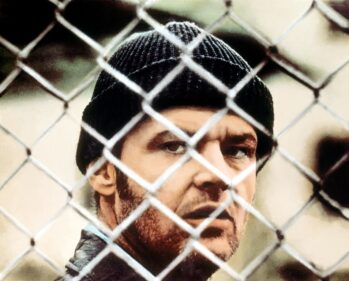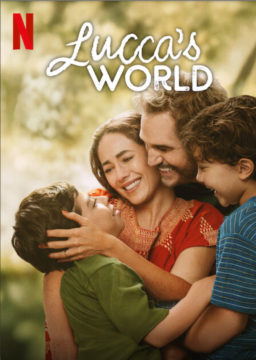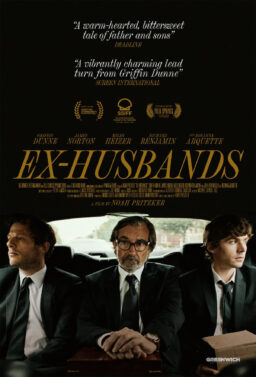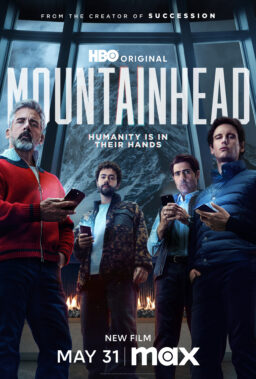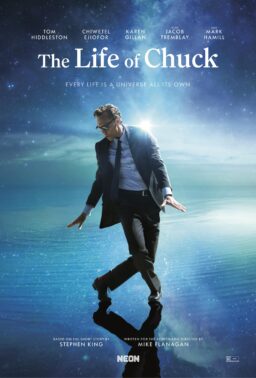At any given film festival, I look forward to discovering the thematic connections between the films that have been programmed. Take last year’s Chicago Critics Film Festival, whose opening night film, “Sing Sing,” and closing night film, “Ghostlight,” both ruminated on the healing power of community theater. The beauty of the second edition of MUBI Fest in Chicago, which took place on April 26-27, lies in the fact that its theme, “Lost in Translation,” was revealed from the start, tying together all of its programming. The fun was deducing how its live concert and seven programmed films explored different facets of being adrift, from being “lost in the sauce” to being “lost in the machine.” As Rico Gagliano, host of the MUBI podcast, shared at the first screening, all the programmed films thematically dealt with miscommunication or misunderstanding, or were movies themselves that were misunderstood.
There are many branches to MUBI; it exists as a streaming service, distribution studio, publication, and a force of curation, and all of those facets were harmonized in this year’s line-up. Free from the frenzy of trying to catch as many titles as possible or the fatigue that usually comes with a film festival, the core theme of MUBI Fest was celebration. The festival emphasized global cinema and, through its selections and through allowing ample time for socialization between screenings, built community and conversation around projects that were often misunderstood or overlooked. In many ways, it served as a bridge between titles that would benefit from a revisit and audiences eager to see old gems with fresh eyes. Chicago is the first stop of the MUBI Fest and the only place in the United States to host this event. It’s an honor fitting of a city, and the events uniquely reflect how Chicago has made significant global contributions to the arts.
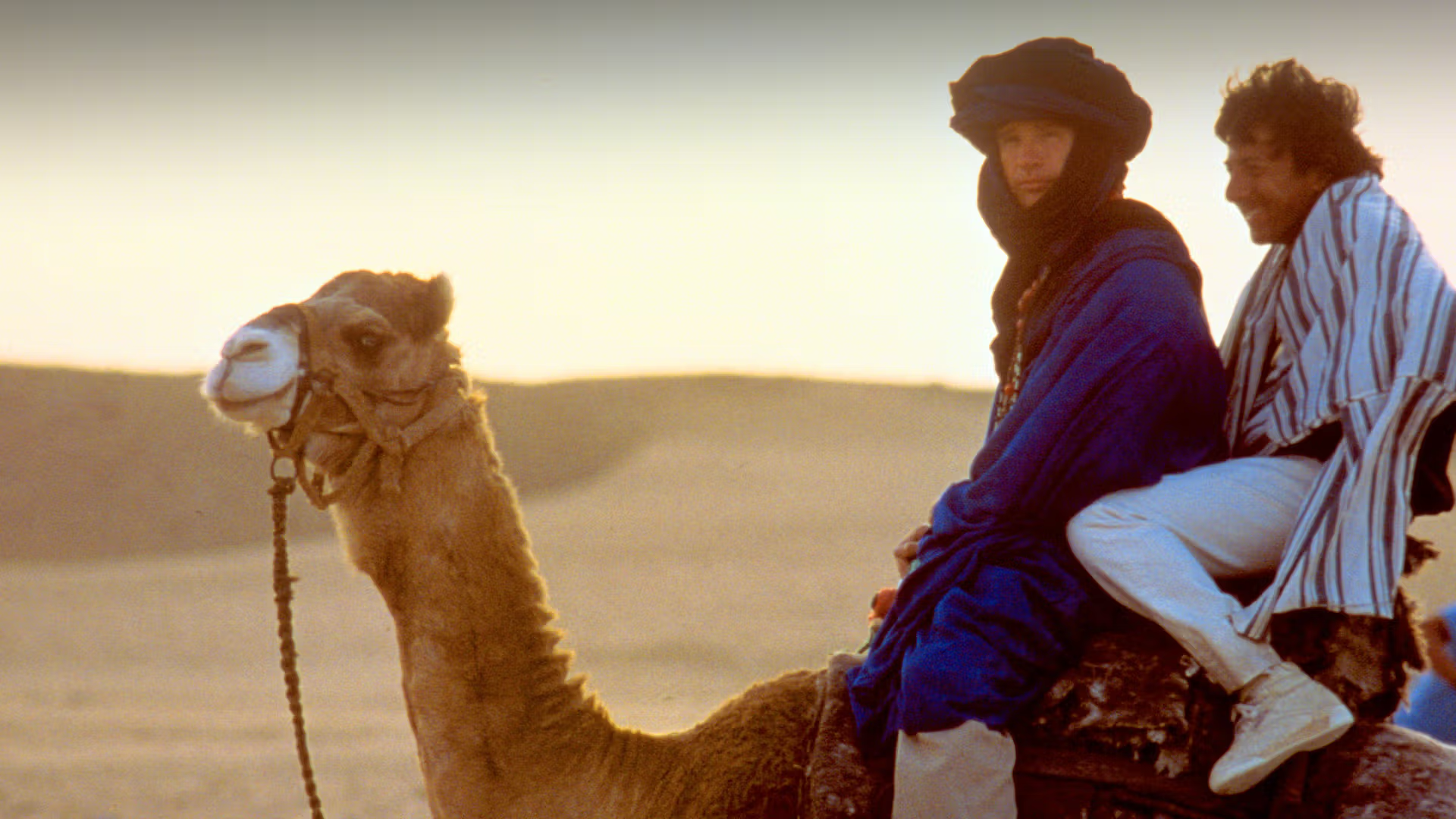
Attending the first day’s slate of films underscored the importance of curation and the effort put into making the movies align not only thematically, but also resonate at a local level. Take Elaine May’s “Ishtar,” the first film of the festival, which screened in 35mm at the Music Box Theatre. The film follows two lounge singers, Chuck (Dustin Hoffman) and Lyle (Warren Beatty), two subpar musicians who manage to book a music gig in Morocco. While there, they become inadvertently entangled in a conspiracy involving the CIA, the Emir of Ishtar, and a rebel cell attempting to regain control. It’s a comedy of errors that coast on Beatty and Lyle’s banter and their commitment to playing against type. In a post-screening conversation with Chloe Lizotte, MUBI Notebook’s deputy editor, and Kate Sachs, a Chicago-based critic, the two discussed the film’s surprising Chicago connection, as May moved to attend the University of Chicago. She never officially enrolled, but while in Chicago, she became a founding member of the improvisational theater group, Compass Players, which would go on to greatly influence Second City. May applied similar improvisational techniques she learned during her time in comedy in the making of “Ishtar.”
After the screening, MUBI hosted a happy hour in the lounge where people could continue the conversation kickstarted by Lizotte and Sachs. Having this space to luxuriate was just one of the many ways the MUBI Fest’s approach to film festing was a rejuvenating shift: there was time to sit down and process a film with old and new friends without feeling the need to rush off to another screening.
Those who did want to jump right into viewing could do so by watching Paul Thomas Anderson’s “Inherent Vice” on 70mm in the large theater. “Inherent Vice” is usually at the bottom of people’s ranked PTA lists, so it was uniquely vindicating to see it get embraced by a sold-out audience. It highlighted yet again how people were willing to give another chance to a film that may have been underappreciated at the time of its release.
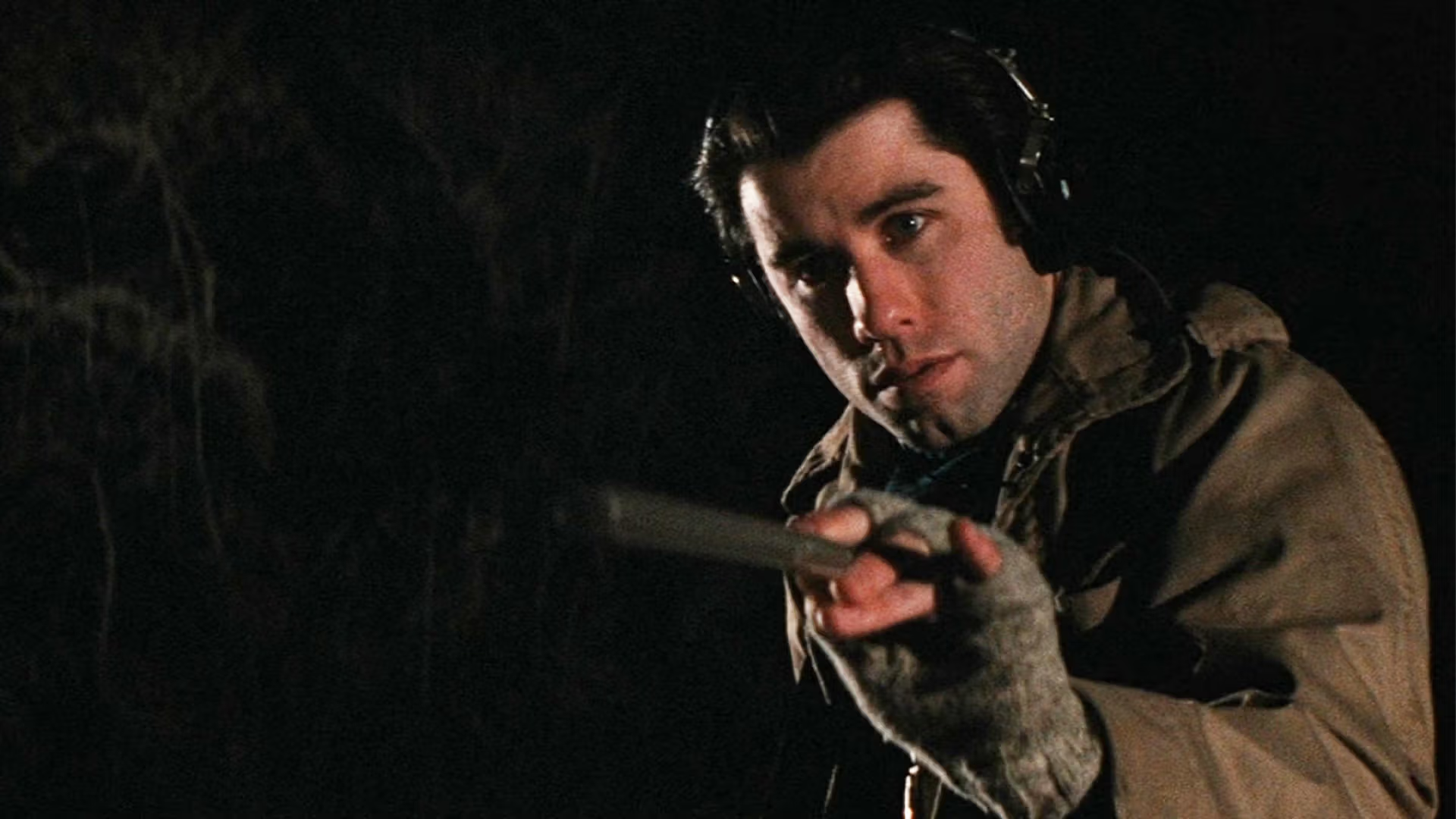
The final screening of the first night was Brian De Palma’s “Blow Out.” It’s sandwiched between two arguably better-known movies in his filmography, “Dressed to Kill” and “Scarface,” but there was no better film at the festival that encapsulated the festival’s themes of dissonance and miscommunication. John Travolta stars as Jack, a movie sound technician who learns that a car accident may lead to a deeper political conspiracy. It’s a film that’s all about the conversations we may overhear out of context and the conspiracies that form when we don’t know the whole story. Still, De Palma masterfully uses the film to tell a larger story about America’s endemic division. It culminates in one of the most iconic final shots in cinema history: Jack cradling the body of his friend and lover in front of the American flag while fireworks explode around him. There’s a cruel irony between the ideals of what America stands for and the violent betrayal of those ideals by those who wield power.
On the following day, those who attended the Music Box were treated to films that explored being “losing innocence” and being “lost in the internet,” as Chicago classic “Cooley High” screened on 35mm followed by Amalia Ulman’s “Magic Farm,” which premiered at this year’s Sundance Film Festival. Although separated by nearly fifty years, it was fascinating to put those films in conversation with each other, as both projects explored the unique tragedy that arises from our hopeful expectations of space and time not aligning with their harsh reality.
On sunny days, it can feel like a conflict of interest to spend the day inside watching movies, but MUBI found a way to let viewers enjoy some of Chicago’s spring weather by hosting the MUBI market at the Salt Shed. The open-air market brought local vendors to share their goods and products, all tailored to fellow movie lovers, and it was the perfect way to socialize and relax between screenings.
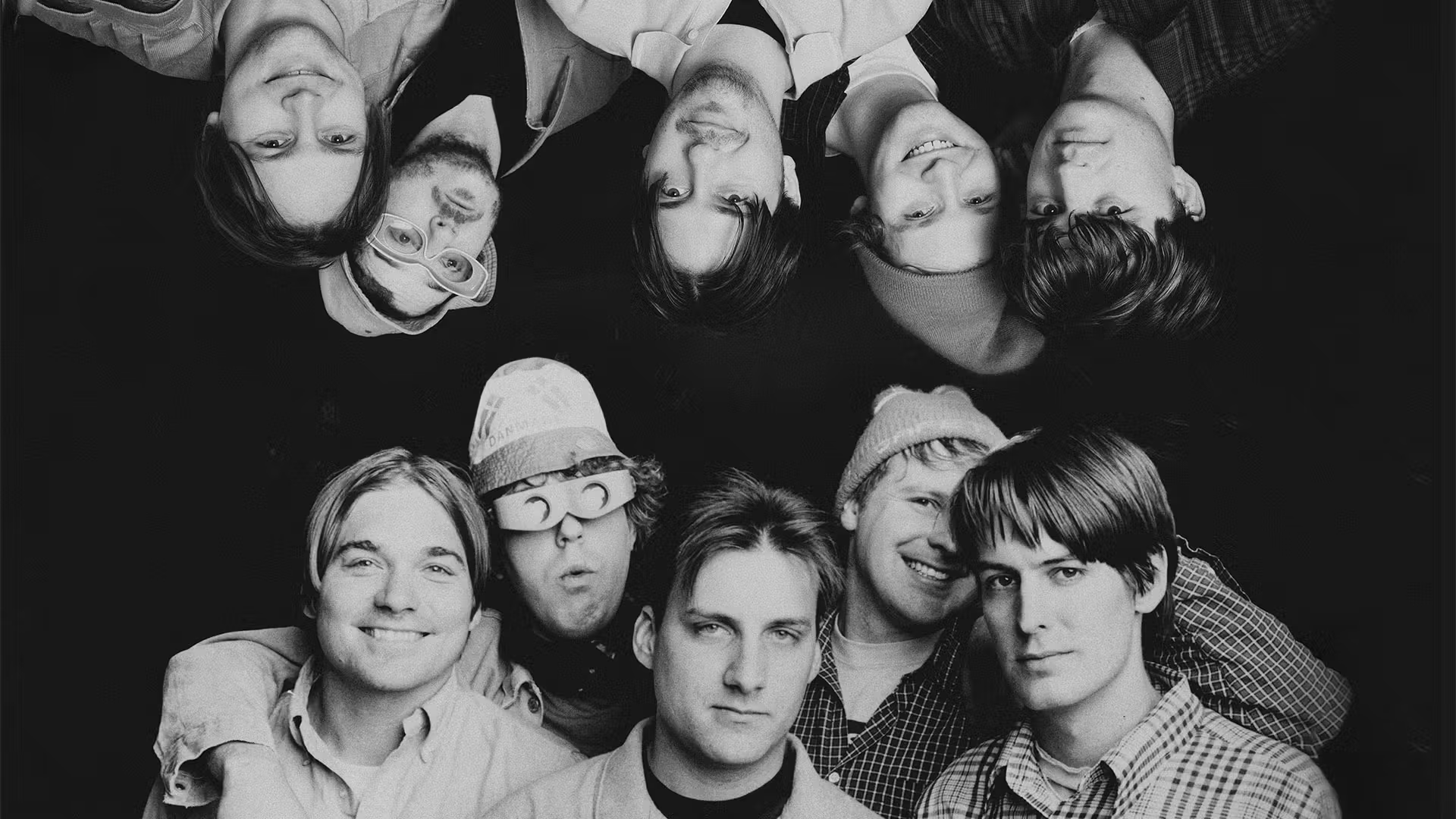
It was a delight to see a music venue transformed into a movie theater, and it was fitting that the films screened there focused on music in some way. The first was Alex Ross Perry’s experimental biopic “Pavements,” which focuses on the titular indie rock band of the same name. At a post-screening Q&A, Perry shared that for a band like Pavement, a film honoring the band’s eclectic yet committed work could not resemble the standard Hollywood biopic. Hence, the film’s unconventional structure merges archival footage with scenes from the band’s history reenacted by actors.
Pavement’s greatest strength was their commitment to being themselves, even if it meant that some saw them as abrasive; for Perry, that meant they were often misunderstood. “You can just tell in that body of work of those albums there, there’s not the compromise,” Perry shared. He went on to highlight how the band thrived by being “impulsively true to themselves” and while that meant in the moment, their music may not have been well-received, “twenty years later, it looks like the greatest career you could ever have.” The film and conversation made me think of the art I may have written off prematurely and what “flops” I may grow fond of if I gave them their proper time in the spotlight.
To close out the screenings was another prime example of a beloved film that didn’t get its time to shine properly: director Tarsem’s “The Fall.” Up until the festival, MUBI had teased a special guest, and the crowd erupted with applause once Tarsem himself took the stage. This was a repeat viewing for many in the audience, with Tarsem joking that he didn’t need to give a preamble because he would be “preaching to the choir.” Nevertheless, it was enlightening to hear him share the lore behind the film, from its nearly twenty-year production history to the fact that it had a long road to distribution, until MUBI acquired it in July 2024.
Most touchingly, Tarsem gave a shout-out to the late Roger Ebert, highlighting the importance of critical voices and sharing that Ebert championed the film at a time when most of his colleagues were lambasting it. Tarsem noted that Ebert was also a proponent of his first film, “The Cell,” which led Tarsem to try his hardest to have the film play at the Toronto International Film Festival, where he knew Ebert often attended.

These two films served as a proper teaser for a live performance from Boy Harsher. By 8 PM, the Salt Shed had transformed from a makeshift theater back into a live music venue. Attendees spanned the gamut of fandom, from festival goers who hadn’t heard of the band but who stayed behind out of curiosity, to hardcore Harsher fans who had been following the band since their inception. Harsher’s music was a sublime ending to a festival that celebrated the beauty of discord. The band’s tracks, such as “Tower” and “Give Me a Reason,” explore dissonance in fascinating ways, with the electronic beats that bridge the choruses serving as an invitation to dance and let loose. Such music further underscored the ways people can find meaning, safety, and community in what is disordered and misunderstood.
With attention spans being shorter than ever and an endless deluge of content and media to distract us, it can be easy to doom-scroll ourselves into oblivion. MUBI Fest this year felt like a fervent rallying cry to slow down and savor the moment. By learning to pay attention, we don’t let things pass by us so quickly. Seeing these cinematic “failures” get embraced over this weekend reminded me of cinema’s eternal power: the film itself may not change, but we do, and it’s that union between our ever-evolving selves and a piece of art that gives the movies their timeless, redemptive, and vivacious power.

